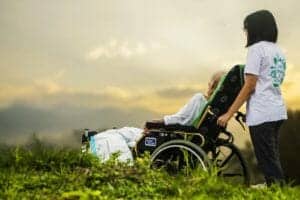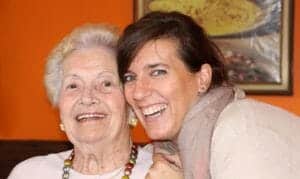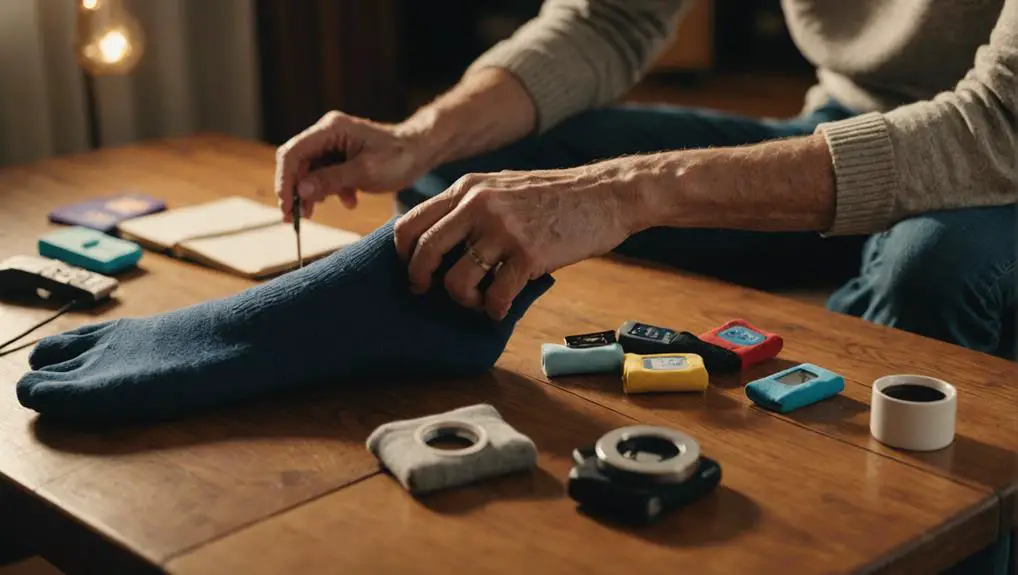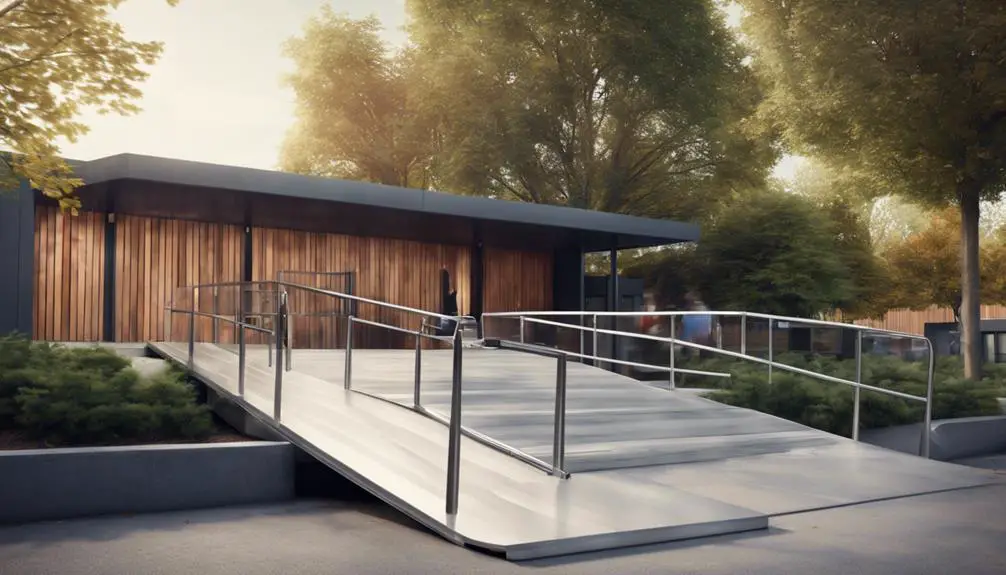increase in stress in the elderlyite about the best antidepressant for elderly depression after dealing with it in my personal life with my elderly parents.
Although depression is not an exclusive elderly phenomenon, it is understood and proven that aging increases the chances of development of depression.
The reasons for this are numerous and include loneliness, coping with chronic diseases, coping with serious illnesses that affect lifespan, retirement, and more.
As you get older, there are many changes – environmental and physical – that can increase mental stress and cause depression.
When it becomes dangerous, how to deal with it and what is the best antidepressant for elderly depression – read this article.
Depression and anxiety in the elderly
The transition to the older age is accompanied by many mental stresses that can not be identified and dealt with, cause anxiety and even depression.
Anxiety in the elderly is a relatively common problem and is due to reasons such as financial worries, illnesses, and concern about approaching death.
As age increases, more and more people around the golden age are passing away.
This illustrates death and makes it part of their daily routine.
Loss of control over their lives and dependence can also cause increased anxiety in the elderly.
Decreased activity due to aging or illness is also a known cause of anxiety and depression.
The person loses his abilities, his independence, he is less able to leave the house, to lead a social life.
Multiple drugs with their side effects combined with poor (unhealthy) diet can also be a source of anxiety and depression.
With aging, one’s memory is also damaged, which can lead to anxiety and depression.
In addition, retirement is accompanied by anxiety if the person did not prepare for it mentally, suddenly possession of lots of free hours in a day without knowing how to fill the time, which leads to anxiety and depression, low sense of self-worth, etc.
Also, he feels more ineffective and sometimes not appreciated after many years in which he worked, received wages, assessments of his work and so on.
The symptoms of anxiety and depression are dangerous to health and therefore it is important to diagnose and treat them as soon as possible.
Tensions in the elderly – from what they arise?
Here is a list of some of the reasons for the increase in stress in the elderly:
- Retiring
- Death of spouse
- Divorce
- Decreased in physical abilities
- Severe and chronic diseases
- Decreased cognitive abilities
- A decline in the economic situation
- Family concerns
- Change of place of residence
- Fear of falling
- Fear of diseases that can develop
Depression in the elderly, Diagnosis:
Depression is not easy to diagnose but can include the following signs (it is important to understand that the signs can also occur as a result of other diseases, so it is important with any signs to consult with a doctor):
- Breathing problems
- Accelerated heart palpitations
- Headaches
- Stress in the muscles
- Pain in the body
- Digestive disorders
- Insomnia
- Lack of appetite
- nervousness
- A sense of hopelessness
- A sense of helplessness
- pessimism
- Feeling guilty
- Feeling of worthlessness
- Loss of interest in activities and hobbies
- Tiredness
- Difficulty concentrating
- Difficulty remembering details
- Sleeping a lot
- Increased eating
- Suicidal thoughts
- Involuntary spasms
- Smoking, and excessive drinking as a means of relieving anxiety
Stress in the elderly – When to seek professional help

Stress in old age may manifest itself in various forms, sleep disorders, palpitations, avoidance of medical tests, hypochondria, general stress, disturbing thoughts, anxiety attacks, sweating, trembling, shortness of breath and a feeling of suffocation.
It is important to distinguish between situations of normal and legitimate concern and a state of tension that is not within the norm.
The distinction between them is not obvious, so it is important to consult a physician in any situation in which the tensions do not pass.
Stress can cause serious side effects and should not be underestimated and it is much better to ensure and treat them as early as possible.
If the doctor sees that the signs are not related to another medical problem and will suspect that they are depression or anxiety, he will usually recommend medication and mental health treatment.
Best Antidepressant For Elderly Depression
1.Depression in the elderly – safe drug treatment
Treatment with depression is a gradual treatment, as the improvement will only take place after a period of medication and gradually.
Medications for depression must be supervised by a physician, psychologist, or geriatric, after careful consideration of the patient’s condition, the medication he is taking, and monitoring the development of treatment and side effects. Do not treat and take pills against depression or anxiety without consulting a doctor.
Antidepressant pills for adults
There are two main groups of drugs for depression and their choice by the doctor will be made in consideration of the physical condition and health of the elderly, the drugs taken and the drug-related side effects.
The 2 groups are:
- Selective inhibitors of re-absorption of Serotonin in synapses – most commonly used for the treatment of the elderly.
- Combined inhibitors of reception and increase of serotonin and noradrenaline in the synopsis.
2.Depression in the elderly, psychotherapy
In addition (sometimes instead of) medication for mild to moderate depression, psychotherapy, cognitive behavioral therapies that help with depression and classic psychodynamic treatments and a combination of the two treatments will also be provided.
It is important to remember that depression is a real disease that, without adequate treatment, can lead to both mental and health risks, so if there is even a slight suspicion of depression and anxiety, it is important to seek medical assistance as soon as possible.
3.Stress relief activities
In fact, any activity that distracts thought from the source of tension will help to dispel it.
Example activities include:
Physical activity- (I have great articles regarding exercise for the elderly on this website, check them out!)
- Engaging in hobbies
- Participation in classes
- Volunteering
- Laugh and smile even if you do not really like it
- To visit friends and family and, when possible, hug
- Travel
- Make plans for the future and plan the steps
- Cooking
- Walking and venturing
- Massage
- Writing
- Yoga and various relaxation techniques
- Breathing exercises
4.Occupational therapy
The importance of occupational therapy for adults.
At some point in life, the body begins to send signs of decreased physical or cognitive functioning or has experienced a certain trauma that causes it to decline and as we mentioned earlier these problems are big contributors for depression in the elderly.
There are several therapeutic frameworks that can be adapted to help it return to normal activity or improve it.
One of the recommended treatment options for these conditions is occupational therapy.
A review of this framework for adults – here before you.
Occupational Therapy – What Does It Mean?
This field belongs to the field of health and its purpose is to assist the patient to resume functioning and activity in the occupations that are important to him and his lifestyle.
Occupational therapy can be addressed at any age since treatment is for those who have some disorder in functioning due to a physical, mental, cognitive or communicative problem.
The problem may be congenital, or following trauma (accident, surgery, etc.), and of course due to a decrease in function due to advanced age (as will be explained later).
The treatment itself is individual since it is adapted to the patient personally according to the diagnosis made to him.
Treatment in this field is provided in many frameworks: the health funds, private clinics, rehabilitation homes, nursing homes, day care centers, and more.
When does an adult need occupational therapy?
When an elderly person or those close to him notice a decline in his daily functioning and wish to improve the situation so that the person can continue to function independently in his home and within the community, he may contact the occupational therapist.
The decrease in function can be due to several reasons:
- Cognitive decline that makes it difficult for the elderly to perform independent daily activities
- Brain injury following an accident or medical procedure
- Any kind of injury that impairs daily functioning
- Changes in the body following a fall, accident or any other trauma
- Changes in the body following an ongoing illness or one that has damaged organs such as joints and limbs
Diagnosis of a treatment with occupational therapy
The Occupational therapist will perform a comprehensive diagnosis of the patient’s lifestyle, including a personal interview with the patient, physical and cognitive abilities by asking him to perform certain actions, obtaining a medical opinion, a conversation with the patient’s relatives, whether a spouse, Etc. – these can usually give information that the patient is not aware of and that they see in the everyday.
In addition, if possible, the therapist also performs a kind of coordination of expectations with the patient so that the purpose of the treatment will be clear.
Treatment plan in occupational therapy with adults
As noted above, occupational therapy is individual therapy tailored to the needs of the patient.
After a comprehensive diagnosis of the patient’s life, a relevant treatment plan can be formulated.
The program also includes a reference to the patient’s environment.
Examples of components that can be included in the treatment plan include:
- Cognitive exercises and stimuli: Elderly people who have decreased cognitive functioning tend to abandon hobbies that occupied their leisure time and were significant for them.
The exercises and stimuli allow the patient to rebuild this essential routine to suit his or her condition. - Physical exercises and stimuli: A decrease in physical abilities, whether caused by an accident or decreased function due to aging, greatly influences the critical daily conduct (cooking, bathing, cleaning, etc.) and the significant activity of hobbies (sports, crafts, etc.).
The motor exercises allow the patient to restore (fully or partially) the function of the damaged or weak organs, or to adopt new functional abilities if there are dysfunctional organs.
For example, if the author’s strong hand is damaged and can no longer function, the occupational therapist will be able to perform exercises that will strengthen the other hand and will even get used to writing. - The patient’s living environment: The occupational therapist will be able to advise the patient’s family how to adapt his living space to his condition, in terms of technical or technological aids that will help him in his daily life, such as adding a bench in the shower, armchair matching, safety railings, wheelchair fitting,magnifying glasses (For example for TV), large screen phone, cooking and eating accessories and more.
- Harnessing key figures: Relatives or caregivers can be a significant figure that will help the elderly to perform the exercises even after the official hours of treatment.
These people can make sure that the elderly person has received the content of the treatment and is applying it on the ground.
They can also give the therapist a feedback from the “side watchers” on the functioning of the elderly and thereby help his progress.
5.Nursing home
I know that it is not for anyone but it is also an option to consider.
How living in a nursing home can prevent depression in the elderly?
A nursing home provides all the necessary services, both medical and social.
The presence of a similar audience in one compound provides the elderly with broad possibilities for creating new and productive social connections.
In addition, physical activities and diverse lectures in sheltered housing, together with a rich social environment, all contribute to reducing the risk of developing depression and anxiety in the elderly.
Conclusion:
The best antidepressant for elderly depression is a combination of 5 methods: Antidepressant pills, psychotherapy, Stress relief activities, occupational therapy and moving to a nursing home
Consult a professional and decide how to incorporate these 5 methods or at least one of them in the elderly’s life so they will be the most beneficial for him.
If you have any suggestion and comments regarding best antidepressant for elderly depression, please leave them in the comments below.

Hi, my name is Eddie, I am a professional trainer specializing in the elderly population and I’m also a website designer. I love training in the gym, going to the beach, traveling, and having good food.
I combined my love for sport and website designing to make “DisabilitEase” whose purpose is to help elderly and disabled people live a more full and active life, have more fun, and enjoy their unique journey despite any disability.


